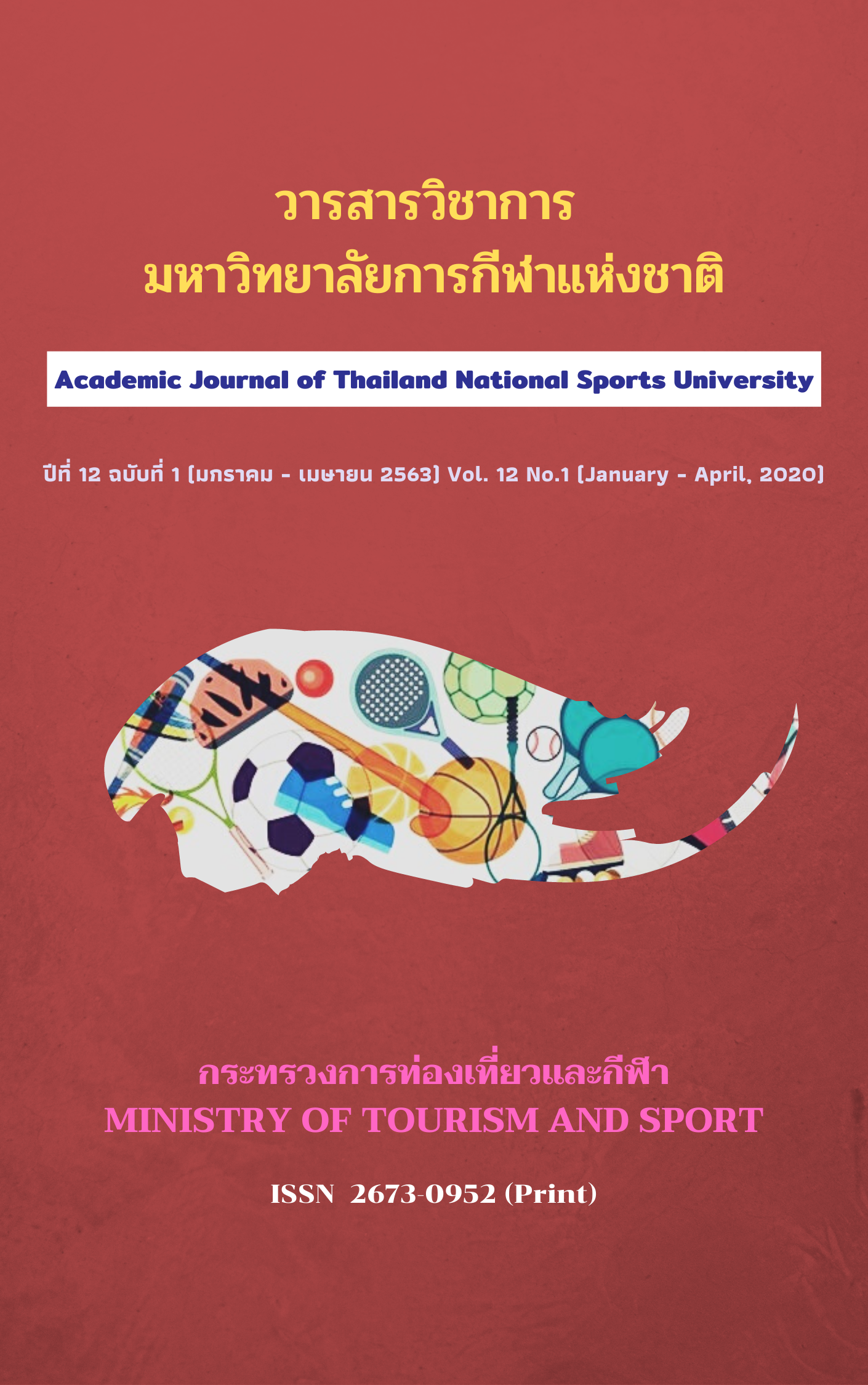ORAL HYGIENE PROMOTING PROGRAM DEVELOPMENT FOR ELEMENTARY SCHOOL STUDENTS
Main Article Content
Abstract
The purpose of this research was to develop an oral health promotion program for elementary school students. A review of the research literature was conducted on the following topics: dental health programs in schools, knowledge of disease and oral hygiene, oral care perception of the severity of oral health problems, how to brush your teeth as a form of Protection Motivation theory and Self-efficacy theory and the promotion of dental health in schools. An expert analysis of the quality of the program was conducted. The content of the program and the consistency of the content determined by five experts included 1) Assessment form for content validity, activity components 2) Content validity evaluation of 10 activities and 3) An evaluation form for content validity of the developed program. The results showed that index of congruence of the program consisted of the activity name, purpose, conceptual framework, and the steps in each activity was 1.00. This program had 10 activities i.e., 1) Exploration oral health 2) Plaque index examination 3) Dental check up 4) Smiling children 5) Information of dental health 6) Perception of oral risk 7) How to properly clean teeth 8) Questions and Answers 9) Communication among home, school and dentist and 10) Sharing information. The average mean of index of congruence was 0.98. The program was set for 6 weeks, 2 days per week, and 1 hour per day. The index of Congruencies of the overall program was 0.96. The program was determined to help elementary students develop behaviors in knowledge, attitude and practice in oral health.
Article Details
The published article is a copyright of the Academic Journal of Thailand National Sports University. The passage appeared in each article in this academic journal is a perspective of each author which is not related to the journal. Each author is required to be responsible for all components of his/her own article. If there are any mistakes, each author must be responsible for those mistakes on his/her own.
References
Antonio, A. G. et al. (2006). Oral health conditions in children with and without school-based oral preventive program. Pediatric Dental Journal. 16(2), 163-169.
Bandura, A. (1977). Self-efficacy; Toward a unifying theory of behavioral change. Psychological Review, 84, 19-21.
Bertness, J. Holt, K. and Barzel, R. (2016). Promoting Oral Health in Schools: A Resource Guide. Washington, DC: National Maternal and Child Oral Health Resource Center.
Boer, H. & Seydel, E. R. (1996). Protection Motivation Theory. In M. Conner, & P. Norman (Eds.), Predicting Health Behaviour: Research and Practice with Social Cognition Models. (Eds.) Mark Conner: Open University Press.
Bureau of Dental Health. (2018). 8th National Oral Health Survey Sample of Thailand. (2017). Department of Health, Ministry of Public Health of Thailand.
Chingchai Buathong et al. (2015). The effects of oral health promotion program on dental caries prevention behaviors of grade six students at Ban Banghean School at Plaipraya District, Krabi Province. Journal of Community Health Development Quarterly Khon Kaen University, 3(2), 293-306.
Em-on Senanurit et al. (2014). A model for dental health promotion in schools through collaborative networking in Tum Yai Subdistrict, Khumuang District, Burirum, 2011 - 2012. Journal of Health Science, 23(3), 609-618.
Institute for Population and Social Research, Mahidol University. (2018). Mahidol Population Gazette. Retrieved January 05, 2018, from http://www.ipsr.mahidol.ac.th/ipsr/ Contents/Documents/Gazette/Gazette2018TH.pdf.
Kazdin, A. E. (1974). Comparative effects of some variations of covert modeling. Journal of Behavior Therapy and Experimental Psychiatry, 5, 225-231.
Kwanta Boonvas et al. (2016). Effects of a health education video on dental caries preventive behaviors among school children grade 4-6 in Trang Province. Boromarajonani College of Nursing, Uttaradit Journal, 8(2), July - December 2016, 60-72.
Lai, H. et al. (2016). School-based oral hygiene education program has long-term positive effects on oral health Indicators. The Journal Evid Base Dent Pract 2017, 65-67.
Rogers, R. W. (1975). A protection motivation theory of fear appeals and attitude change. Journal of Psychology, 91, 93–114.
Rovinelli, R. J. & Hambleton, R. K. (1977). On the use of content specialists in the assessment of criterion-referenced test item validity. Dutch Journal of Educational Research, 2, 49–60.
Weerayouth Poltao and Pannee Banchonhattakit. (2014). The effects of dental health education program by using multimedia assisted instruction for preventive dental caries and gingivitis behavioral modification among primary school students, Nonsang District, Nongbualamphu Province. Thai Dental Nurse Journal, 25(2), 75-88.
Wongtip Inpun. (2015). Effect of dental health program to dental caries prevention behavior among sixth grade students of Anubanprachinburi School. Phranakhon Rajabhat Research Journal, 10(1) January – June, 131-142.


